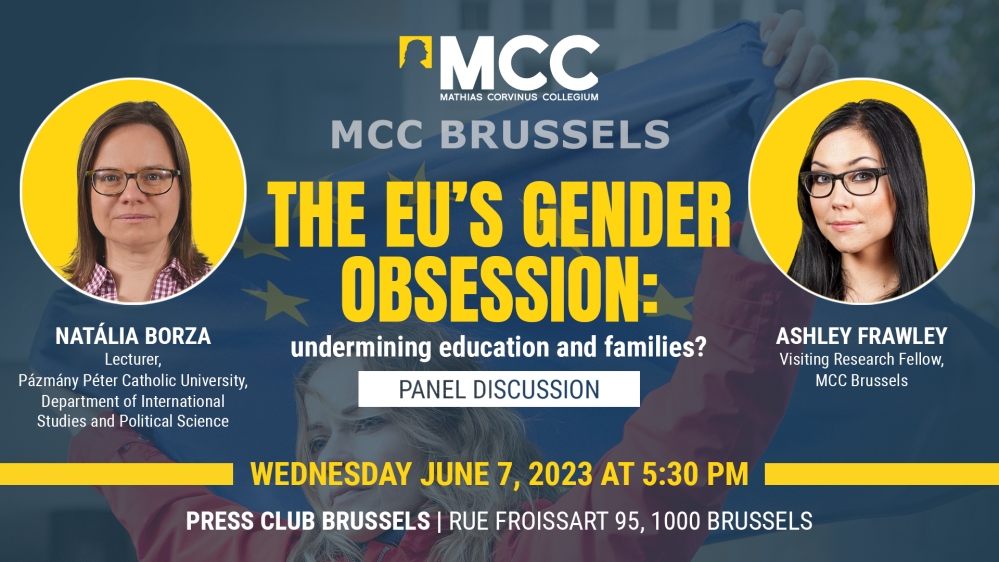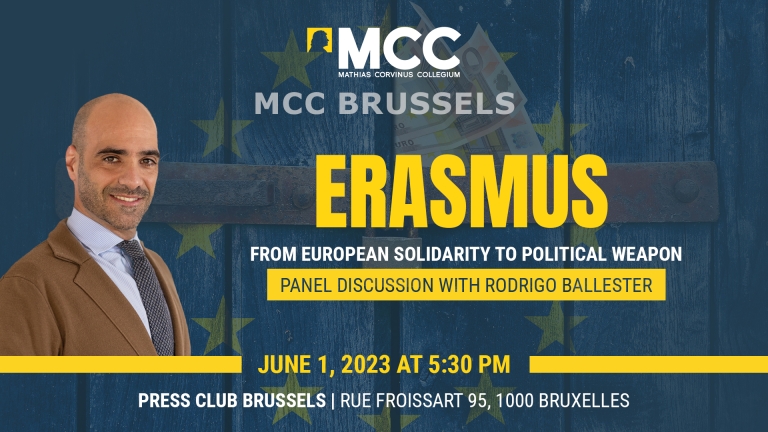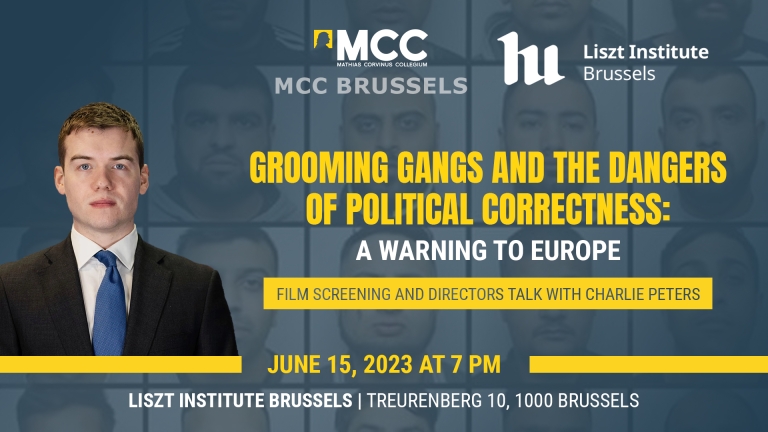Wednesday 7 June 2023
Press Club Brussels
Speakers:
-
Dr Nátalia Borza, Senior Lecturer at Pázmány Péter Catholic University, Budapest
-
Dr Ashley Frawley, Visiting Research Fellow, MCC Brussels
Register here
One of the words that is rarely missing from EU policy pronouncements is ‘gender’. In areas as diverse as business regulations to family policy, EU officials are busy ensuring that EU policy promotes the twin ideas of gender equality and gender identity. The policies aim at both overcoming a history of prejudice against women and certain minority groups and allowing people to choose their own path in life, free of discrimination. Yet many critics argue that a range of controversial ideas – such as young people being ‘born in the wrong bodies’ or the de-legitimation of traditional families – are entering the centre of European policy under the guise of gender.
Of particular concern are the areas of education and the family. For a vast number of Europeans, the family is a delicate institution which plays a central role in the functioning of society, and as such requires both independence from politics and a measure of stability. According to critics, the attention paid to ‘gender’ risks undermining this institution. Similar concerns are raised about education, where the role of education is said to be handing down knowledge across generations, not remodelling society in the vein of social engineering. However, proponents of the turn to gender insist that teaching kids about gender and remodelling the family is essential to combat prejudice and promote tolerance of alternative lifestyles.
One concern is that, in both cases, the assumption has traditionally been that the policies for such institutions are matters for nation states, rather than supranational organisations. Yet, increasingly, EU institutions declare competencies to reform and regulate these institutions.
Should the family and education policies be matters reserved for nation states? Does the turn to gender risk damaging traditional institutions, and should this be a cause for concern? Is mainstreaming the concept of gender a way to make societies more tolerant, or is it a social project hostile to the wishes of many Europeans? What should be the role of the EU in the family and education, if it has one at all?
Join MCC Brussels for a panel discussion on this contentious issue


